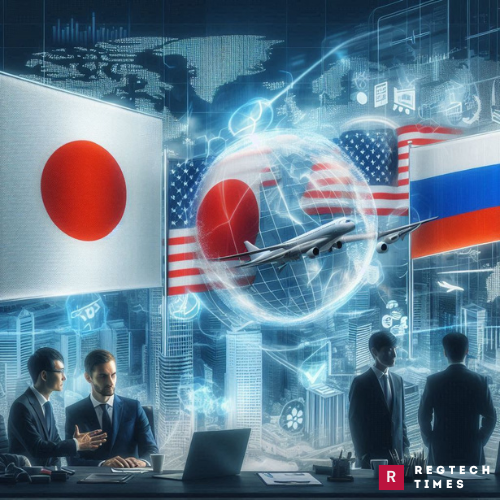In a recent escalation of diplomatic tensions, Russia has barred entry to thirteen prominent Japanese executives in response to Japan’s sanctions linked to Russia’s military actions in Ukraine. This move has drawn sharp protests from Tokyo, which views the restrictions as an unjust form of retaliation.
The List of Banned Japanese Executives
The Russian foreign ministry announced the entry bans on Tuesday, citing Japan’s “ongoing sanctions” against Russia due to its “special military operation”—Moscow’s term for its invasion of Ukraine. The sanctioned Japanese executives include high-profile figures such as Akio Toyoda, chairman of Toyota Motor Corporation, and Hiroshi Mikitani, founder of Rakuten Group. Other notable names on the list are Ikuo Takeuchi, President of Toyobo Co, and Mitsuo Oya, President of Toray Industries.
Japan’s Response and Protests
Chief Cabinet Secretary Yoshimasa Hayashi condemned the Russian decision, asserting that it would impede legitimate corporate activities and calling it “totally unacceptable.” In a media briefing, Hayashi emphasized that Japan’s sanctions are a direct response to Russia’s invasion of Ukraine, which Tokyo regards as a clear violation of international law. The Japanese government has lodged a formal protest with Moscow, denouncing the travel bans as an unjustifiable punitive measure against its business leaders.
Japan Sanctions Indian Company Si2 Microsystems for Assisting Russia
Lack of Explanation for Selection Criteria
The Russian foreign ministry’s announcement included no specific rationale for why these particular Japanese executives were targeted, nor did it explain the criteria used for their selection. Notably, leaders of other major Japanese firms, such as Honda, Sony, and Mitsubishi, were not included in the travel ban list. This selective targeting has raised questions about the underlying motives behind the sanctions.
Japanese Sanctions on Chinese Firms; China Condemns and Retaliates Against Lockheed Martin
Japan’s Support for Ukraine and Strategic Responses
Japan has been a staunch supporter of Ukraine throughout the conflict, providing substantial financial aid and material support to Kyiv. Although Japan’s pacifist constitution traditionally limits its involvement in military affairs, the country has made notable exceptions. In December, Japan adjusted its arms export policies to allow the sale of domestically produced Patriot missiles to the United States, aimed at replenishing U.S. stocks depleted by the ongoing conflict in Ukraine.
Tech War Strategy : US Allies Japan and Netherlands Target China’s AI Chip Development
Impact on Japanese Executives and Business Operations
The Russian decision to impose these travel restrictions appears to be a strategic countermeasure aimed at exerting diplomatic pressure on Japan. By targeting leading Japanese executives from influential corporations, Russia may be attempting to signal its displeasure with Japan’s support for Western sanctions and its broader stance on the Ukrainian conflict.
Tokyo’s response to the ban has been resolute, emphasizing that Japan’s sanctions are in line with international efforts to hold Russia accountable for its aggressive actions. The Japanese government has highlighted that its sanctions are not targeted at specific individuals but are part of a broader international effort to address violations of international law and support global stability.
Broader Geopolitical Implications
This diplomatic spat emphasizes the broader geopolitical tensions surrounding Russia’s invasion of Ukraine and the international community’s response to it. As countries around the world grapple with the fallout from the conflict, incidents like these highlight the complex interplay between international diplomacy, economic sanctions, and global business.
In the meantime, the affected Japanese executives face an uncertain future regarding their interactions with Russia. The travel bans could disrupt ongoing business operations and collaborations, affecting not only the individuals directly involved but also the broader Japanese business community. The situation also raises concerns about the potential for further retaliatory measures and the impact on international trade and diplomacy.
As the diplomatic row continues, the international community will be watching closely to see how Japan and Russia navigate this latest conflict. The situation serves as a reminder of the far-reaching consequences of geopolitical conflicts and the intricate balance required to manage international relations in times of crisis.
Russia’s decision to ban thirteen Japanese executives is a significant diplomatic move, reflecting the strained relations between Moscow and Tokyo. Japan’s protest against the travel restrictions highlights the broader context of international sanctions and geopolitical tensions, emphasizing the need for continued dialogue and diplomatic engagement to address global conflicts and promote stability.


